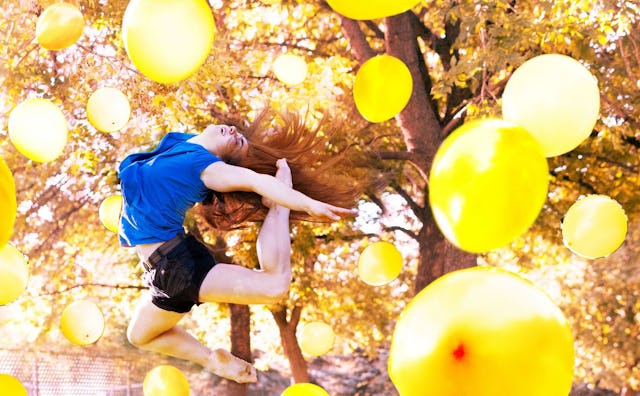Are You Too Enthusiastic to Be Cool?

At least, that’s what it feels like to this enthusiastic person. As a child, I had a ton of spirit, but I also had so much fear that it was only when the event or thing I feared ended, and I felt relief that it was over, that I could actually feel joy. Enthusiasm existed in me; I knew it was there—but actually feeling it would take decades.
In my late twenties and early thirties, I developed the vocabulary to talk about my emotions and began learning the skills to cope with once-unmanageable situations. As I gained control over my fears, I became excited about things I’d once shied away from, and when I began to finally feel my enthusiasm, I expressed it with an earnestness usually reserved for someone younger. An adult’s unbridled excitement at the prospect of going on an adventure or meeting someone they admire isn’t cool—it’s weird. Or so I was told. Only thing is, I don’t think I am weird.
I enjoy things more than I don’t. Great ideas and rigorous, intellectual conversation elevate me; the more I learn from people smarter than I am, the happier I feel, and the more I trust that life does not want the worst for me. I don’t fake my disinterest, and I’m not overeager; I’m just authentically interested and engaged by people and what they have to say, more than I am not. Because so much of my young life felt impossible, I am now driven by all the things that seem possible, even if they aren’t.
Enthusiasm’s opposite is aloofness, a trait I despise. Aloofness is “cool,” distancing, and makes people feel bad.
A couple of years ago, I had a conversation with a friend of mine who is considerably younger (she is now 28) and somehow it came out that while she thought I was cool for “my age,” (forties) I was—to her generation—”sort of a nerd.” When I asked her what made me “sort of a nerd,” she said, “You show your enthusiasm.” That made me so sad. Not for me (okay, sort of for me) but for enthusiasm.
Enthusiasm’s opposite is aloofness, a trait I despise. Aloofness is “cool,” distancing, and makes people feel bad. I don’t like being made to feel badly, I’m sensitive to it, and I’m sensitive toward the feelings of others. This means I go out of my way to be the opposite of aloof, to ensure people feel welcome and comfortable, which makes the uncool people uncomfortable and leaves me feeling profoundly uncool, which of course makes me feel badly. What’s an enthusiastic person to do?
A friend of mine is also unabashedly enthusiastic. He tells everyone, I mean EVERYONE, that he loves them. I find it very winning. It probably makes people uncomfortable because they don’t know what to say in return, but the thing is, he’s not saying it to hear it back. He’s saying it because he feels it, and something in him can’t not say it. That’s what enthusiasm feels like: overflow that cannot be contained.
Part of my enthusiasm is born out of a concern that other people suffer from the very fears that overshadowed my own ability to feel enthusiasm as a child. In other words, my friendliness is compensatory, used with the assumption that others share all my same fears and it’s my job to protect them. But really it’s me in the past I’m protecting, and the enthusiasm I showcase to offset other people’s fear of not fitting in—or the assumption that they fear not fitting in—is, ironically, the very trait that makes me not fit in.
People think I’m weird, or dorky or nerdy because I embrace people, ideas and things more easily than I reject them. I’ve tried tempering it, but energy is hard to tame. But what really surprises me has nothing to do with how other people perceive my enthusiasm, or how they see me; it’s that after so many years of feeling unhappy and scared, I have grown into a genuinely enthusiastic person.
This article was originally published on